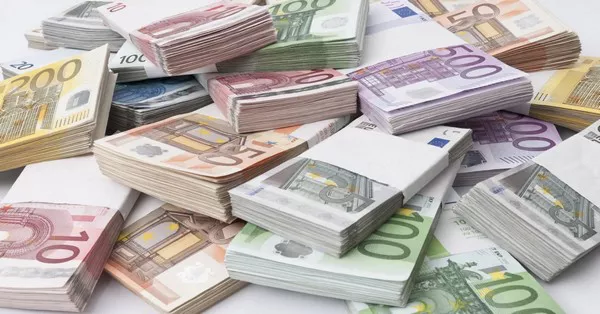The euro has been one of the strongest currencies in the world, and its performance has been closely monitored by investors and traders alike. The eurozone has faced various challenges over the past few years, including political instability, sluggish economic growth, and high unemployment rates. As we approach 2023, many are wondering what the future holds for the euro. Will it appreciate or depreciate against other major currencies, such as the US dollar, British pound, and Japanese yen?
Economic Recovery
One of the key factors that could support the euro’s appreciation in 2023 is the ongoing economic recovery in the eurozone. The region has been hit hard by the COVID-19 pandemic, but the vaccination campaigns have gained momentum, leading to a gradual easing of restrictions. The European Commission predicts that the eurozone economy will grow by 4.2% in 2021 and 4.4% in 2022, boosted by fiscal stimulus measures and supportive monetary policy from the European Central Bank (ECB).
If the economic recovery continues at a steady pace, it could attract more foreign investment into the eurozone, which would lead to an increase in demand for euros. This could push up the value of the currency relative to other major currencies, especially if other regions, such as the US and UK, experience slower recoveries due to factors such as political uncertainty or new variants of COVID-19.
Monetary Policy
Another factor that could influence the euro’s appreciation in 2023 is the ECB’s monetary policy. The central bank has maintained an accommodative stance by keeping interest rates low and purchasing large quantities of bonds through its asset purchase program. This has helped to support the eurozone’s economy and prevent deflationary pressures from taking hold.
However, the ECB may start to taper its bond purchases in 2022 or early 2023 if the economic recovery continues at a robust pace. This could lead to higher interest rates and reduce the supply of euros in the market, which would make the currency more valuable. On the other hand, if the ECB decides to maintain its current policy stance for longer than expected due to concerns about inflation or economic growth, it could weaken the euro.
Trade and Geopolitics
The euro’s appreciation in 2023 could also be influenced by external factors such as trade and geopolitics. The eurozone is heavily dependent on trade, with many of its major economies relying on exports to drive growth. Any disruptions to global trade flows or the imposition of tariffs by major trading partners such as the US or China could have a negative impact on the eurozone’s economy and weaken the euro.
Moreover, geopolitical tensions could also play a role in the euro’s movements. The EU has been involved in various conflicts with Russia over the past few years, and any escalation in these tensions could lead to increased volatility in the euro’s value. Similarly, any developments related to Brexit negotiations could also impact the euro’s value, especially if there are concerns about a no-deal scenario or a deterioration in relations between the UK and the EU.
Conclusion
In conclusion, predicting the movements of a currency as complex as the euro is a challenge. The euro’s value will depend on a range of factors, including the ongoing economic recovery in the eurozone, the ECB’s monetary policy decisions, trade and geopolitical developments, and the performance of other major currencies. While there are reasons to be optimistic about the euro’s prospects in 2023, there are also potential risks that could weigh on the currency’s value. Investors and traders should monitor these factors closely and adjust their positions accordingly to manage their exposure to currency risk.


